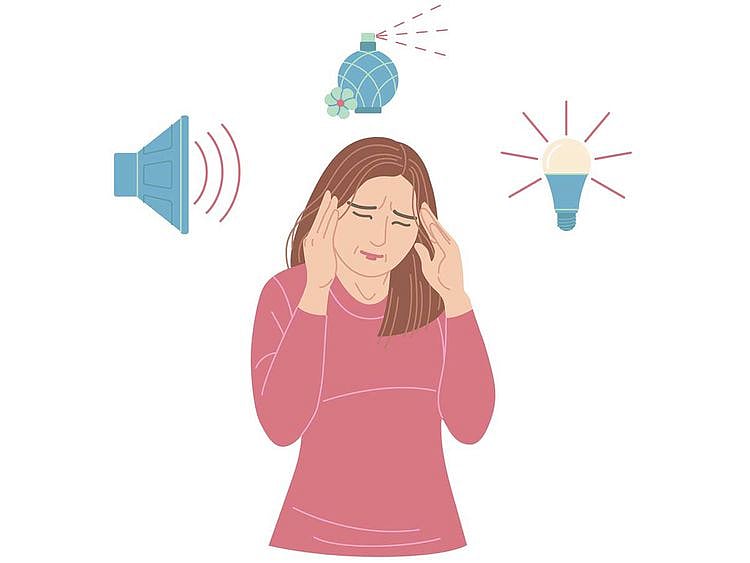A migraine trigger can be anything from a change in the weather, to a reaction to food. Triggers are different for everyone but some of the more common ones are outlined below.
Stress
Physical stress and strain can bring on migraine symptoms in some people. This includes stiffness or tension in the neck and/or shoulders; straining or putting too much pressure on yourself, or demanding exercise, particularly if you’re not used to it.
Strong emotions such as excitement, anxiety, shock or tension as well as any stress or depression you may feel as a result of these, may lead to a migraine.
Sleep
Your sleep habits can impact your migraine; changes in sleep patterns and interrupted sleep can make migraine more frequent. Getting a good night’s rest is really important as too much or too little sleep could trigger migraine attacks. You could reduce the impact sleep may have in triggering a migraine by better planning travel, not working unsocial hours, or avoiding sleeping in on the weekend.
Foods and diet
Frustratingly, foods that trigger migraine include some of the things many of us love most, including chocolate, cheese and other dairy products, citrus fruits and seafood. Also, if you experience migraine you may want to avoid additives, like the sweetener aspartame and the preservative monosodium glutamate (MSG), as these can be triggers.6 Beverages such as caffeine and alcohol are also known migraine triggers.
It can be tempting not to eat or drink when you have a headache, but be mindful that dehydration and low blood sugar from a lack of food, can both cause migraine. So just take care of yourself and try to remember to eat and drink.
Sensory stimuli
Anything that has an effect on your senses – touch, smell, taste, sight, hearing – is a sensory stimulus. Sensory stimuli of many different varieties may trigger a migraine attack; these include:
Bright lights
Loud sounds
Strong smells
Flickering lights
Environmental factors
As well as sensory stimuli, there are also things in the environment that can trigger a migraine; these can include:
Change in weather/climate
Stuffy or smoky atmospheres
Medications such as sleeping tablets, contraceptive pills
Hormone replacement therapy (HRT)
The hormones estrogen and progesterone are significant migraine triggers for women. Some women are more sensitive to the fluctuations of these hormones within the menstrual cycle which in turn may have an impact on migraine. As with all medications, it is always a good idea to have a discussion with your doctor about the best ways to manage your migraine, particularly when taking any kind of hormone therapy or contraceptive pill.
Sign up for the Daily Briefing
Get the latest news and updates straight to your inbox
Network Links
GN StoreDownload our app
© Al Nisr Publishing LLC 2026. All rights reserved.
